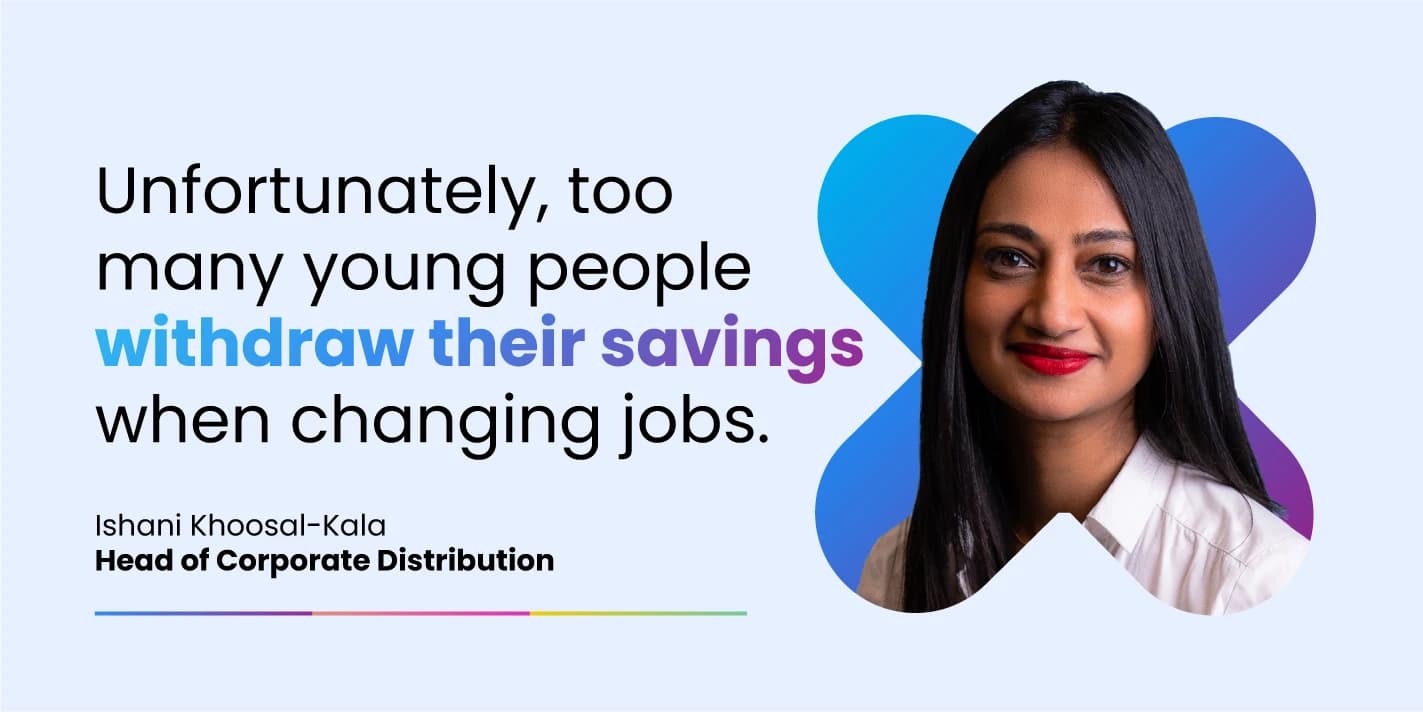Why you should save for retirement from your first day at work
6 July 2023
For young people new to the world of work and earning a salary for the first time, saving for retirement is probably the last thing on their minds. It’s natural to want to have some fun, splash out a little and start acquiring things.
But if you’re savvy from the outset and save a portion of your income from your first salary cheque onwards, it’s money you’ll never miss, yet this relatively small monthly investment in your future can make an enormous difference to your life when that future arrives.

Ishani Khoosal-Kala, Head of Corporate Distribution at retirement experts 10X Investments, says this is because of the exponential growth on your savings afforded by compounding interest over the long term.
“It’s important to start saving from day one because the build-up of capital from a young age, with compound interest on investment returns, places you in a much better space when you retire,” she says.
Say you are 25 years of age and your starting salary is R20 000 a month. At that age, 10X’s recommended proportion of income to save is 15%. Using 10X’s online retirement calculator, if you put away R3 000 a month, your projected retirement lump sum at age 65 would be R7.06 million at today’s rand value. This would provide you with a sustainable monthly income of R39 000 until the age of 85. Of your total savings, only about R1.4 million will be from your contributions; the rest (about R5.6 million) will be from compounded returns.
However, this kind of positive outcome is only realisable if you preserve and keep contributing to your savings over your entire working career. Unfortunately, too many young people withdraw their savings when changing jobs. It’s easy to see why: the temptation of accessing a sizeable lump sum can be very difficult to resist.
There are good reasons why you shouldn’t succumb to this temptation:
- First, the tax you’ll pay on your retirement withdrawal is high (roughly 18% or more). This is because the government has effectively subsidised your retirement contributions by making them tax-deductible, so it’s a way to recoup some of that money if you aren’t using your savings for retirement.
- Second, it’s not only the lump-sum you lose for your retirement; the compounded returns on that lump sum are also lost.
If you cashed in your retirement savings after your first couple of jobs, and only started saving in earnest at 40 years of age, 10X has calculated that you would need to put away a whopping 40% of your salary to achieve the same outcome as saving 15% from the age of 25.
Another factor holding young working people back when it comes to saving for retirement is the common belief that, when the time comes, the government will provide for them. But the government’s old-age social grant was never designed to replace the income of salaried workers, and in a weak economy with high inflation, this vital lifeline for the poor is being stretched to its limits.
“The government grant is currently R2 000 a month, and at the slow rate the SA economy is growing due to all the pressures and corruption issues, there is a long way to go before we see a recovery. Even if the economy does recover by the time the young reach retirement, with living expenses going up, an increase in the old-age grant will still not be enough for recipients to live comfortably,” Khoosal-Kala says.
How can we 10X Your Future?
Begin your journey to a secure future with 10X Investments. Explore our range of retirement products designed to help you grow your wealth and achieve financial success.